- Browse
- T Sql
Results for "t sql"
 Status: NewNewStatus: Free TrialFree Trial
Status: NewNewStatus: Free TrialFree TrialSkills you'll gain: SQL, Database Management, Database Design, Database Architecture and Administration, Query Languages, Databases, Data Manipulation, Performance Tuning, Data Integrity
Beginner · Specialization · 1 - 3 Months
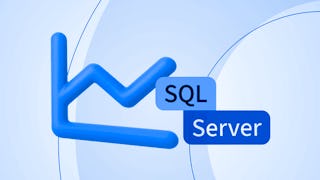 Status: Free TrialFree TrialM
Status: Free TrialFree TrialMMicrosoft
Skills you'll gain: Stored Procedure, Star Schema, Microsoft SQL Servers, Database Design, Relational Databases, Data Integrity, Data Integration, SQL, Transaction Processing, Power BI, Data Warehousing, Database Management, Transact-SQL, Data Maintenance, Databases, Query Languages, Database Architecture and Administration, Performance Tuning, Database Systems, Data Management
4.6·Rating, 4.6 out of 5 stars216 reviewsBeginner · Professional Certificate · 3 - 6 Months
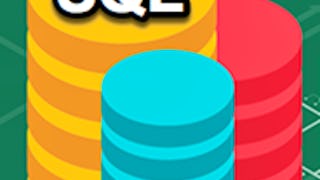 Status: Free TrialFree Trial
Status: Free TrialFree TrialSkills you'll gain: SQL, Relational Databases, Stored Procedure, Databases, Query Languages, Jupyter, Data Manipulation, Data Analysis, Pandas (Python Package), Transaction Processing, Python Programming
4.7·Rating, 4.7 out of 5 stars23K reviewsBeginner · Course · 1 - 3 Months
 Status: Free TrialFree TrialP
Status: Free TrialFree TrialPPearson
Skills you'll gain: Database Design, Relational Databases, SQL, Database Management, Query Languages, Database Development, Database Systems, Data Management, Databases, Data Integrity, Oracle Databases, Data Modeling, Data Analysis, Data Manipulation, Data Structures, User Accounts
Intermediate · Specialization · 1 - 4 Weeks
 Status: Free TrialFree TrialM
Status: Free TrialFree TrialMMicrosoft
Skills you'll gain: Microsoft SQL Servers, SQL, Transact-SQL, Databases, Relational Databases, Data Transformation, Data Manipulation, Query Languages, Generative AI, Data Analysis
4.6·Rating, 4.6 out of 5 stars172 reviewsBeginner · Course · 1 - 4 Weeks
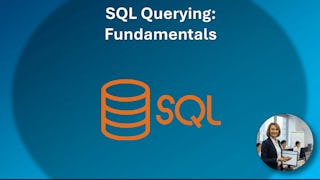 Status: NewNewStatus: PreviewPreviewL
Status: NewNewStatus: PreviewPreviewLLogical Operations
Skills you'll gain: Microsoft SQL Servers, SQL, Query Languages, Database Software, Database Design, Data Import/Export, Database Management, Databases, Relational Databases, Data Access, Data Manipulation, Extensible Markup Language (XML), Data Analysis Expressions (DAX), Data Management
Mixed · Course · 1 - 3 Months
What brings you to Coursera today?
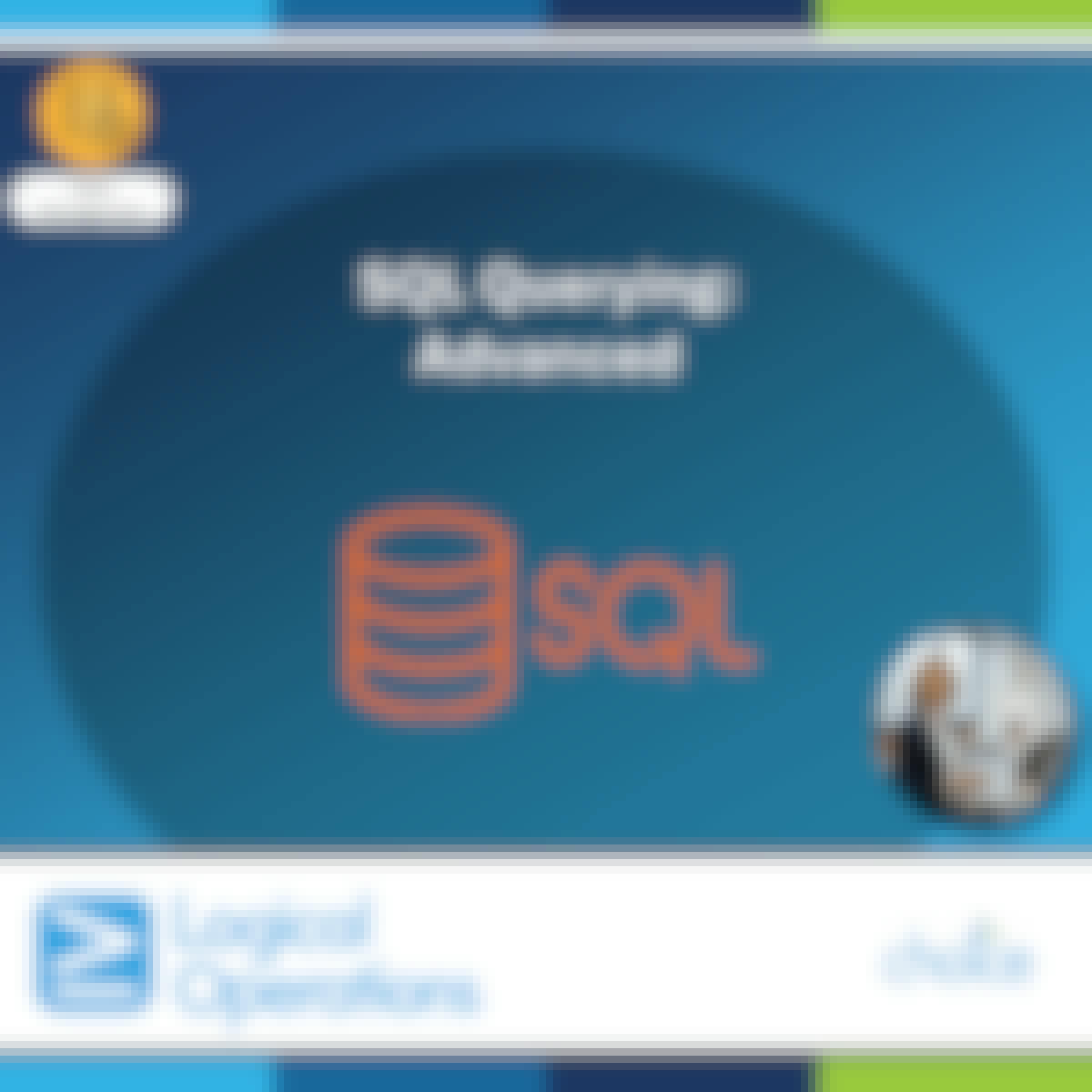 Status: NewNewStatus: PreviewPreviewL
Status: NewNewStatus: PreviewPreviewLLogical Operations
Skills you'll gain: Microsoft SQL Servers, SQL, Query Languages, Transaction Processing, Database Management, Data Manipulation, Relational Databases, Databases, Database Design, Database Software, Data Management, Data Integrity, Performance Tuning
Mixed · Course · 1 - 3 Months
 Status: NewNewStatus: Free TrialFree Trial
Status: NewNewStatus: Free TrialFree TrialSkills you'll gain: Microsoft SQL Servers, SQL, Relational Databases, Database Management, Database Design, Transact-SQL, Database Systems, Server Administration, Query Languages, Databases, Database Administration, Database Architecture and Administration, Data-Driven Decision-Making, Data Integrity, Database Management Systems, Servers, Data Manipulation, Data Processing, Scripting Languages, System Requirements
Beginner · Specialization · 3 - 6 Months
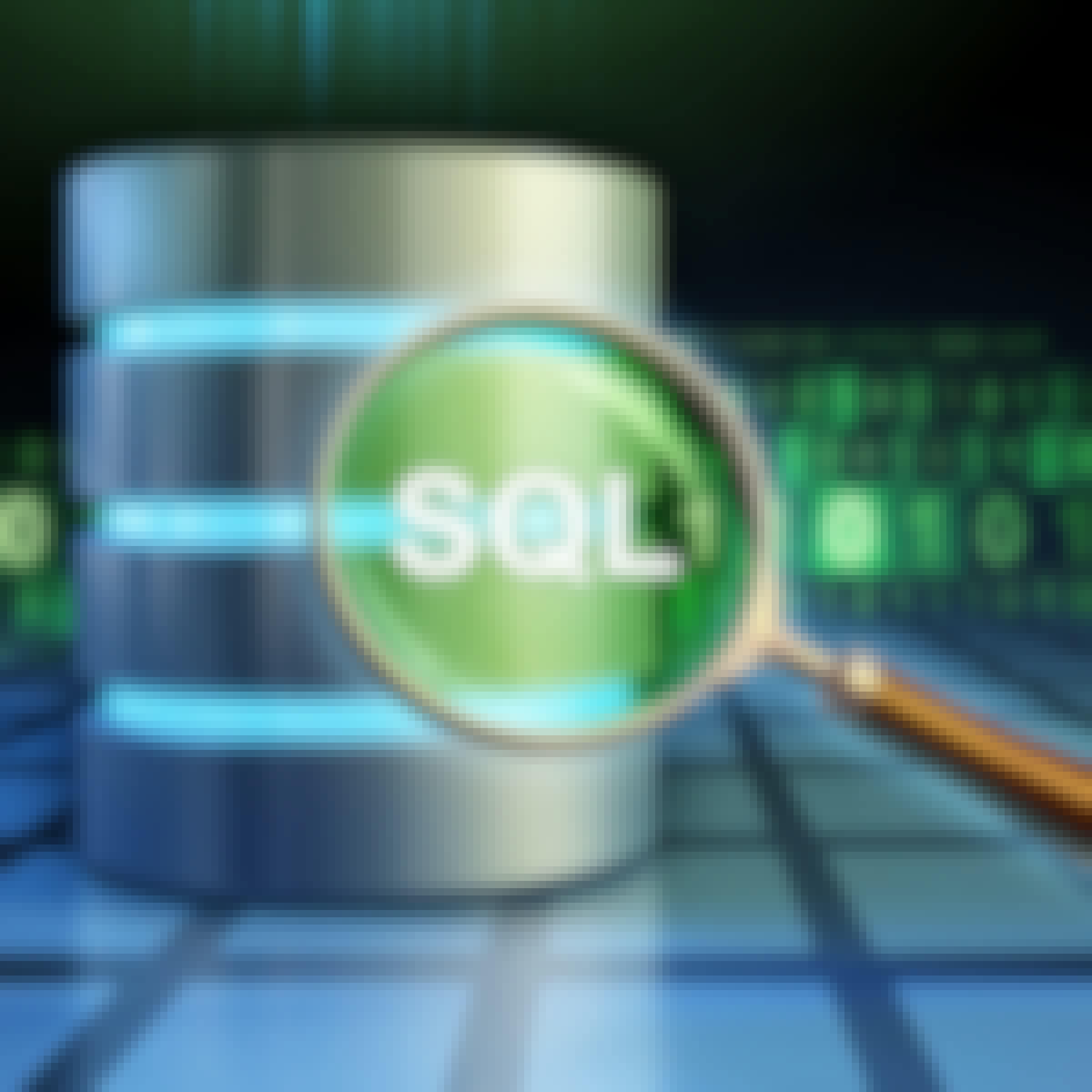 Status: Free TrialFree Trial
Status: Free TrialFree TrialSkills you'll gain: SQL, Relational Databases, Microsoft SQL Servers, MySQL, Query Languages, Database Systems, Databases, Database Management, Stored Procedure, IBM DB2, Data Manipulation, Data Analysis, Transaction Processing
4.7·Rating, 4.7 out of 5 stars689 reviewsBeginner · Course · 1 - 3 Months
 Status: Free TrialFree TrialC
Status: Free TrialFree TrialCCorporate Finance Institute
Skills you'll gain: SQL, Databases, Data Manipulation, Data Analysis, Data Cleansing, Relational Databases, Data Access, Data Synthesis, Query Languages, Data Warehousing, Data Transformation
4.8·Rating, 4.8 out of 5 stars67 reviewsBeginner · Course · 1 - 3 Months
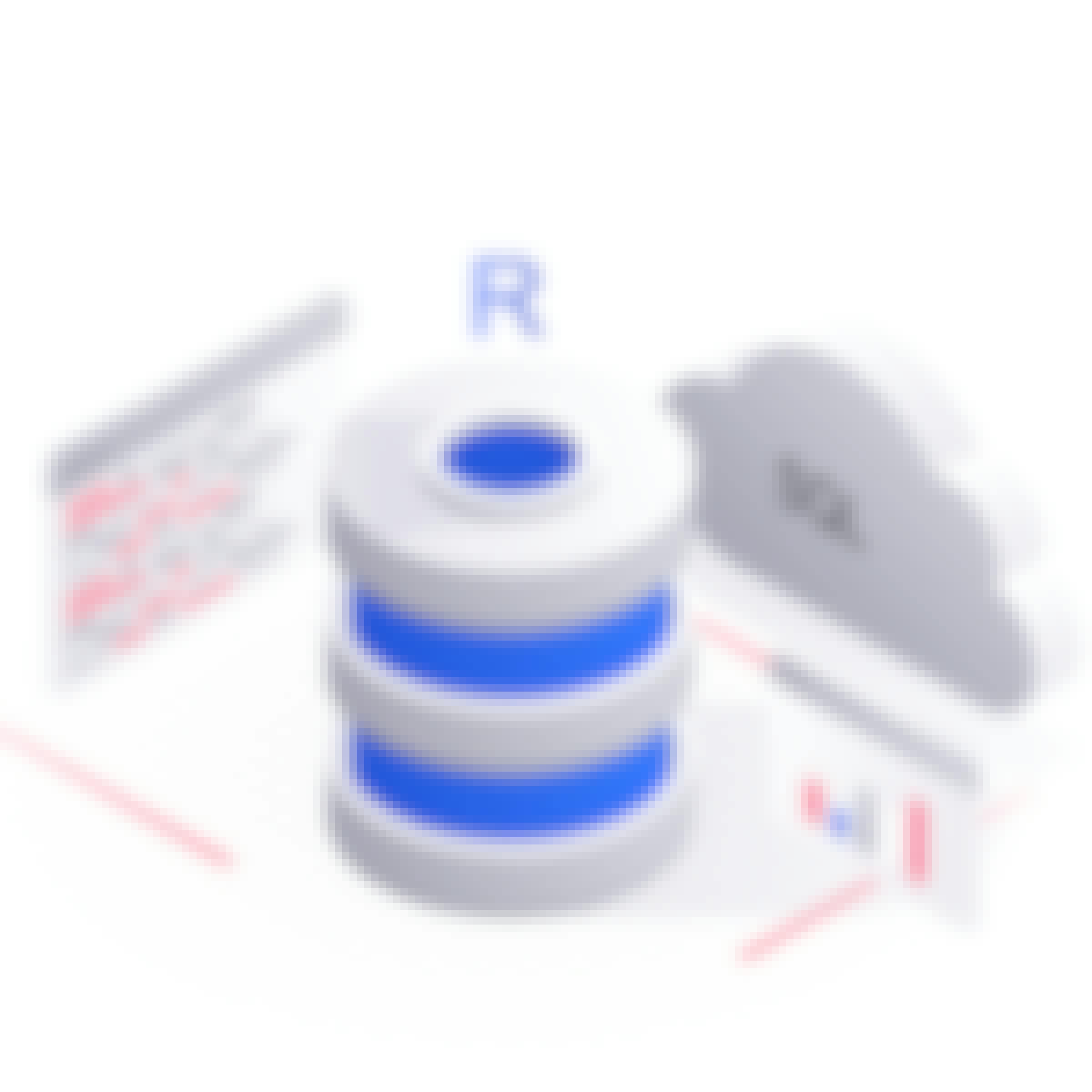 Status: Free TrialFree Trial
Status: Free TrialFree TrialSkills you'll gain: Database Design, Relational Databases, SQL, Databases, R Programming, Database Management, Data Science, Data Modeling, Query Languages, Data Access, Data Manipulation, Data Analysis
4.4·Rating, 4.4 out of 5 stars191 reviewsBeginner · Course · 1 - 3 Months
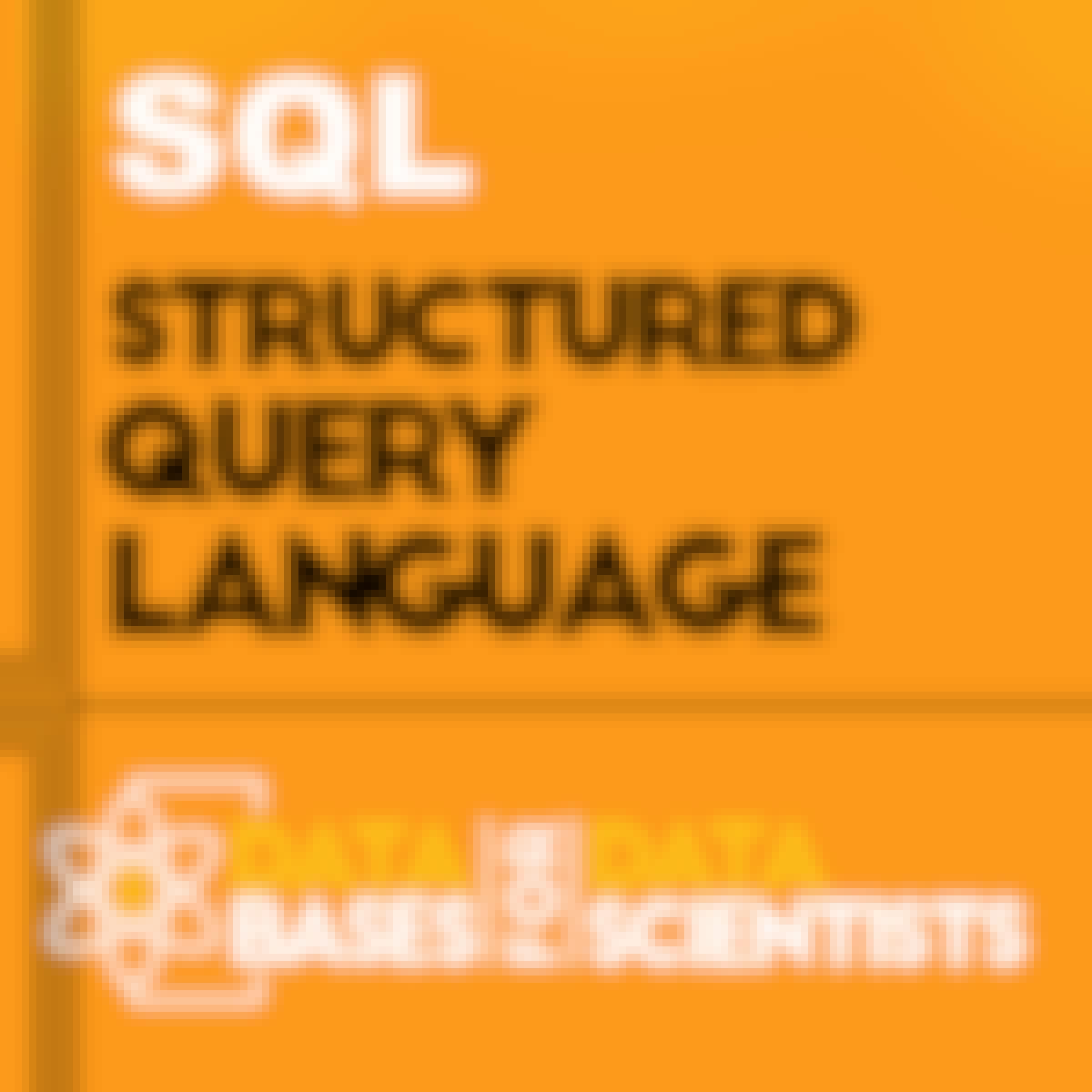 Status: Free TrialFree TrialU
Status: Free TrialFree TrialUUniversity of Colorado Boulder
Skills you'll gain: SQL, Database Systems, Database Theory, Database Management, Query Languages, Database Design, Relational Databases, Database Administration, Database Application, Data Access, Data Science, Data Analysis, Data Manipulation, Data Modeling, Data Integrity
Build toward a degree
4.7·Rating, 4.7 out of 5 stars1.1K reviewsBeginner · Course · 1 - 3 Months
What brings you to Coursera today?
In summary, here are 10 of our most popular t sql courses
- Build & Analyze SQL Databases Through Real Projects: EDUCBA
- Microsoft SQL Server: Microsoft
- Databases and SQL for Data Science with Python: IBM
- SQL for Any IT Professional: Pearson
- SQL Foundations: Microsoft
- SQL Querying: Fundamentals: Logical Operations
- SQL Querying: Advanced: Logical Operations
- Apply SQL Server Database Management & Analytics: EDUCBA
- SQL: A Practical Introduction for Querying Databases: IBM
- SQL Fundamentals for Data Analysts: Corporate Finance Institute
Frequently Asked Questions about T Sql
T-SQL stands for Transact-SQL and it is a programming language used to manage and manipulate relational database systems, specifically in Microsoft SQL Server. T-SQL is an extension of the SQL (Structured Query Language) standard with additional features and functionalities. It allows users to create, alter, and query databases, as well as perform various operations such as data retrieval, insertion, deletion, and modification. T-SQL is commonly used by database administrators, developers, and data analysts to interact with SQL Server databases and perform complex data operations and manipulations.
To learn T-SQL (Transact-SQL), you will need to gain proficiency in the following skills:
SQL Fundamentals: Understanding the basics of SQL (Structured Query Language), including database design principles, data types, tables, and relationships, is crucial to learning T-SQL.
T-SQL Syntax: Familiarize yourself with the syntax and structure of T-SQL statements, such as SELECT, INSERT, UPDATE, DELETE, JOIN, and GROUP BY. This includes learning about T-SQL functions, operators, and clauses.
Data Manipulation: Learn how to manipulate data in Microsoft SQL Server using T-SQL. This involves writing queries to retrieve, update, delete, and insert data into a database.
Query Optimization: Gain an understanding of how to optimize T-SQL queries by utilizing indexes, avoiding unnecessary computations, and improving query performance.
Stored Procedures, Functions, and Triggers: Learn how to write and use T-SQL stored procedures, functions, and triggers to create reusable code blocks that enhance the efficiency and functionality of your database applications.
Error Handling: Familiarize yourself with T-SQL error handling techniques, such as TRY-CATCH blocks, to handle exceptions and ensure proper data integrity.
Views and Indexes: Understand how to create and utilize views as virtual tables and indexes for faster data retrieval and enhanced performance.
Transactions and Concurrency: Learn about transactions in T-SQL, including ACID properties, isolation levels, and handling concurrent data modifications.
Querying Multiple Tables: Master the art of joining multiple tables using various types of joins (INNER JOIN, LEFT JOIN, RIGHT JOIN, and FULL JOIN) to retrieve data from related tables.
- Reporting and Analysis: Explore advanced T-SQL concepts to generate meaningful reports and perform data analysis using functions such as PIVOT, UNPIVOT, and analytical functions like RANK, ROW_NUMBER, and LEAD.
These skills should provide a strong foundation for learning and utilizing T-SQL in various data-centric roles and applications. Make sure to practice regularly and work on real-world projects to solidify your understanding.
There are several job opportunities available for individuals with T-SQL (Transact-SQL) skills. Some of the popular job roles you can pursue include:
Database Administrator (DBA): As a DBA, you will be responsible for managing and maintaining databases, ensuring data availability, and optimizing database performance using T-SQL.
Data Analyst: T-SQL is essential for data analysis tasks, such as querying databases, filtering and aggregating data, and generating reports. With T-SQL skills, you can work as a data analyst, helping organizations make data-driven decisions.
Database Developer: Database developers design, implement, and maintain database applications using T-SQL. You will be responsible for creating database schemas, writing stored procedures, optimizing queries, and ensuring data consistency.
Business Intelligence Developer: T-SQL is widely used in business intelligence (BI) development. As a BI developer, you will work with T-SQL to extract and transform data, design and implement data warehouses, and create interactive dashboards and reports using BI tools.
SQL Server Developer: T-SQL is specifically used with Microsoft SQL Server. As a SQL Server developer, you will be involved in designing and developing applications that interact with SQL Server databases using T-SQL.
- Data Engineer: T-SQL skills are valuable for data engineers who work on designing, building, and maintaining data pipelines and ETL (Extract, Transform, Load) processes. T-SQL is used for tasks like data extraction, data transformation, and loading data into databases.
These are just a few examples, and T-SQL skills can be beneficial in various other roles that involve working with relational databases and data manipulation. Additionally, individuals with T-SQL skills can also pursue freelance opportunities or work as consultants providing database-related services to organizations.
People who are interested in database management, data analysis, and data manipulation are best suited for studying T-SQL. T-SQL (Transact-SQL) is a programming language used for managing and querying relational databases, particularly Microsoft SQL Server. It is commonly used by database administrators, data analysts, and developers who work with databases. Therefore, individuals with a strong interest in working with data, analyzing data, and managing databases would find studying T-SQL beneficial for their career growth and skill development.
There are several topics related to T-SQL that you can study. Some of them include:
SQL Basics: Understanding the fundamentals of SQL, such as syntax, data types, and basic queries, is essential for mastering T-SQL.
T-SQL Syntax: Delve deeper into T-SQL syntax, including statements like SELECT, INSERT, UPDATE, and DELETE, as well as how to manipulate tables, views, and indexes.
T-SQL Functions: Learn about various T-SQL functions, such as aggregate functions, string functions, mathematical functions, and date/time functions.
Stored Procedures: Explore how to create and execute stored procedures using T-SQL. This includes parameters, variables, error handling, and transaction management.
Triggers: Gain an understanding of triggers and their purpose in T-SQL. Learn how to create triggers to automate specific actions when certain events occur in a database table.
Views and Indexes: Get familiar with creating and working with views, which are virtual tables derived from other tables. Also, learn about the importance of indexes for enhancing query performance.
Performance Optimization: Dive into techniques for optimizing T-SQL queries and enhancing overall database performance. This may involve query tuning, indexing strategies, and understanding execution plans.
Data Manipulation: Learn advanced techniques for manipulating data using T-SQL, such as bulk operations, merging data from different sources, and handling complex transformations.
Reporting and Analysis: Discover how to generate reports and perform data analysis using T-SQL. This may involve using tools like SQL Server Reporting Services (SSRS) or leveraging T-SQL features for data aggregation and business intelligence.
- Integration with Other Technologies: Explore the integration of T-SQL with other technologies, such as .NET framework, PowerShell scripting, or data migration tools.
Remember, to truly master T-SQL, it's essential to practice what you learn by working on real-world projects and continuously honing your skills.
Online T-SQL courses offer a convenient and flexible way to enhance your knowledge or learn new T-SQL stands for Transact-SQL and it is a programming language used to manage and manipulate relational database systems, specifically in Microsoft SQL Server. T-SQL is an extension of the SQL (Structured Query Language) standard with additional features and functionalities. It allows users to create, alter, and query databases, as well as perform various operations such as data retrieval, insertion, deletion, and modification. T-SQL is commonly used by database administrators, developers, and data analysts to interact with SQL Server databases and perform complex data operations and manipulations. skills. Choose from a wide range of T-SQL courses offered by top universities and industry leaders tailored to various skill levels.
When looking to enhance your workforce's skills in T-SQL, it's crucial to select a course that aligns with their current abilities and learning objectives. Our Skills Dashboard is an invaluable tool for identifying skill gaps and choosing the most appropriate course for effective upskilling. For a comprehensive understanding of how our courses can benefit your employees, explore the enterprise solutions we offer. Discover more about our tailored programs at Coursera for Business here.










